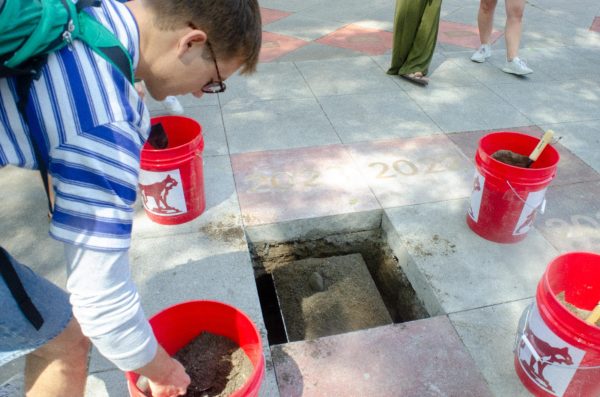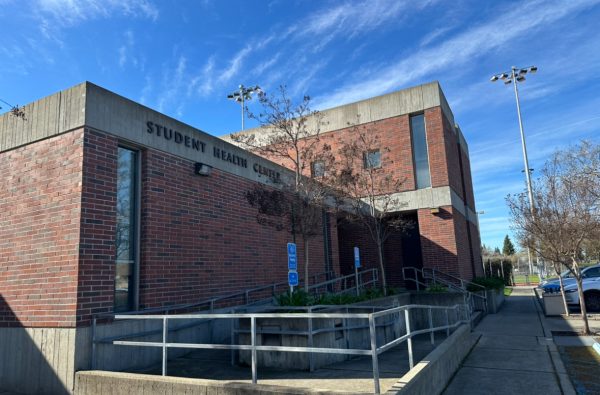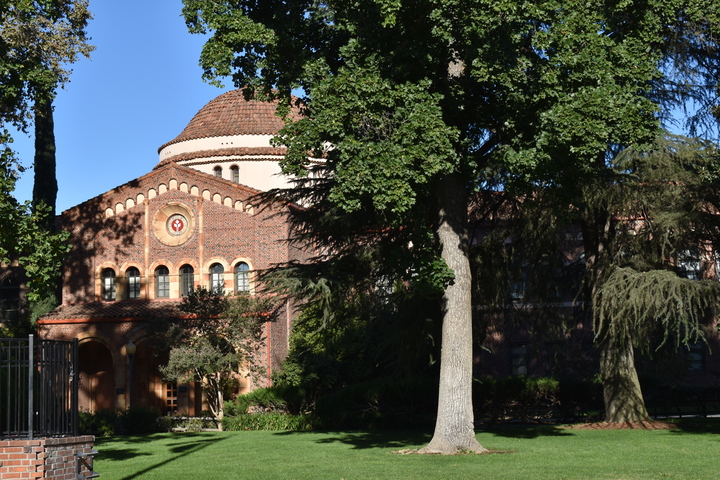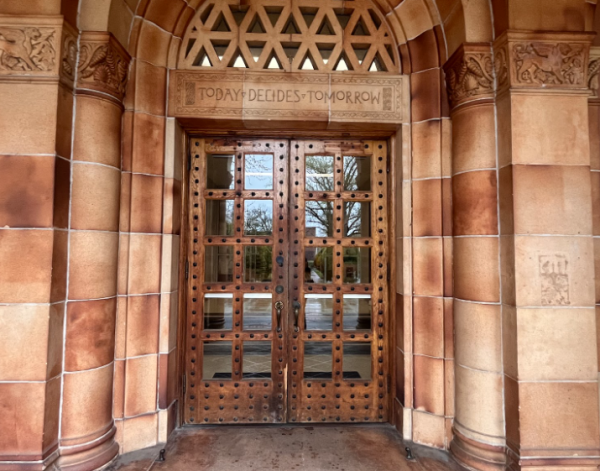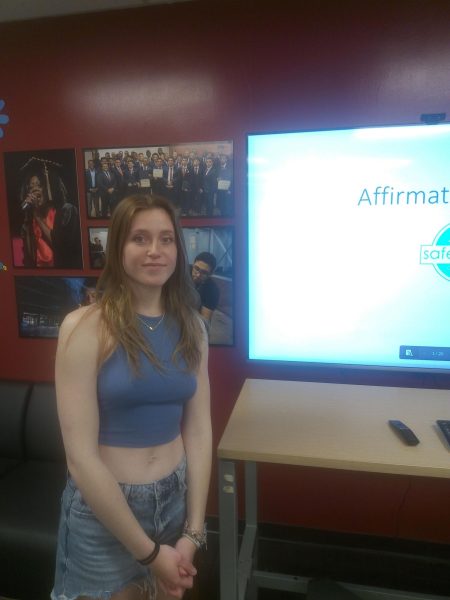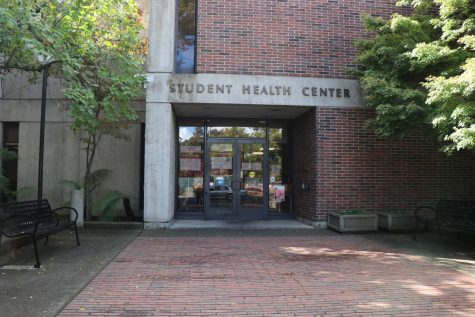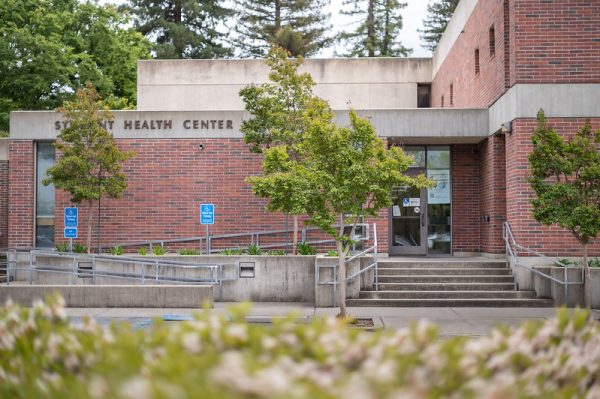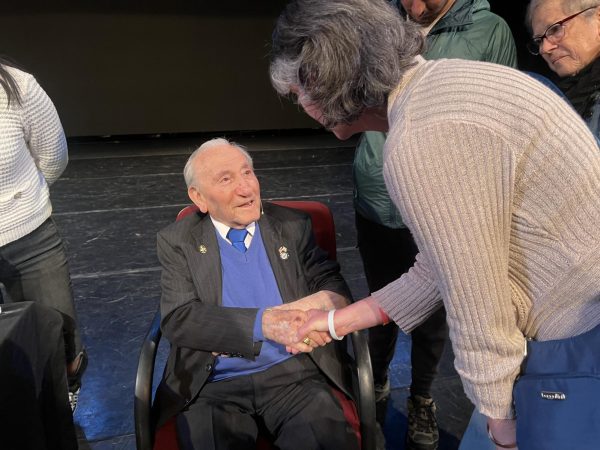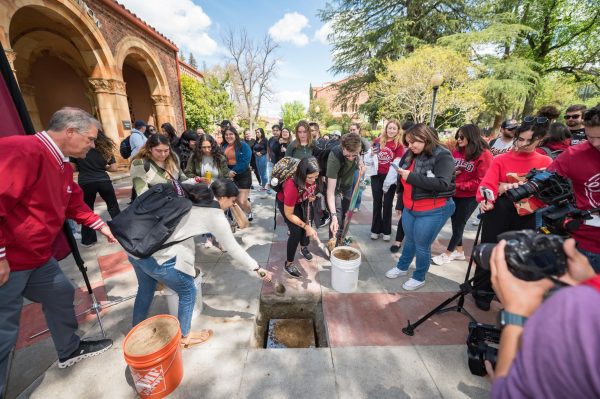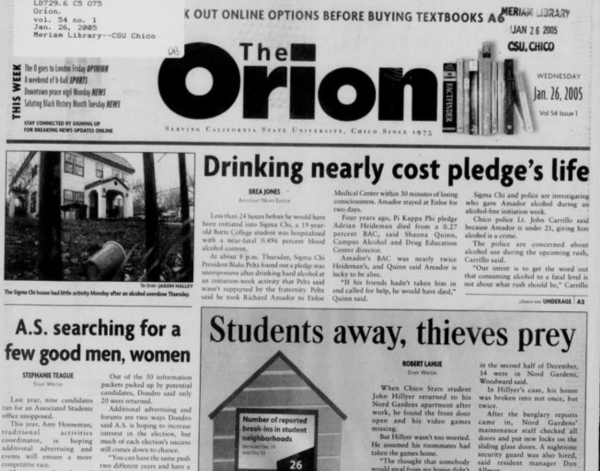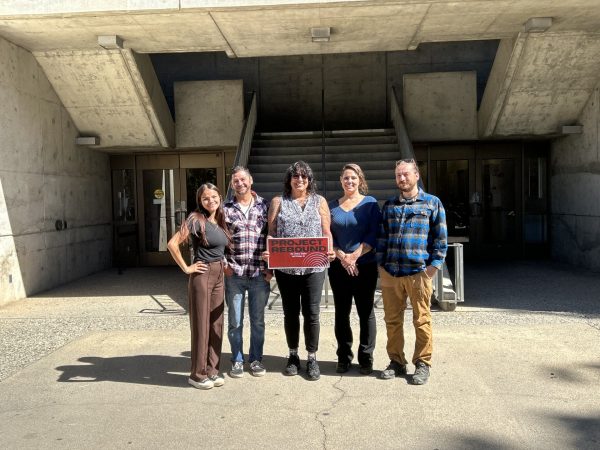AS Government Meeting Sheds Light on Student Resources and Fees for 2021
Fees, enrollment and more were discussed during a virtual town hall hosted by Chico State’s Associated Students on Dec. 2. Photo taken by Jacob Collier.
Decreased enrollment, revenue and COVID-19 assistance were discussed at a town hall hosted by Chico State’s Associated Students on Dec. 2.
President Gayle Hutchinson opened the discussion by announcing that the new physical science building is set to open virtually next semester.
“The laboratories inside are second to none,” said Hutchinson. “It’s going to be a great place to conduct research, to engage in learning activities with school children and for all of our students to learn their science.”
A discussion in response to student inquiries requesting a reduction of tuition led to a financial segment led by Jaime Clyde, Executive Director of Associated Students and Mary Walmark, Director of Student Life and Leadership.
“We’re completely funded by headcount,” said Clyde. “So for every one person that doesnt come into the campus, it’s an $850 dollar loss and all the expenses we have still stay as is.”
Clyde and Walmark indicated that the operating costs of Chico State this year are comparable to other years, but that the enrollment numbers are lower for 2020.
Effectively, this means that Chico State is receiving less revenue than it would in a typical year, while maintaining similar operating costs. For this reason, tuition has not been reduced for the 2020-2021 academic year.
It was also noted that if Chico State does receive more federal funding, similar to what was received through the CARES act, faculty will primarily use those monies to help students.
The meeting also discussed some of the resources that are available to Chico State students during this pandemic.
Students can receive assistance with housing and food insecurity and counseling for mental health wellness, all of which are issues that have been exacerbated by COVID-19.
On the topic of free speech and advocacy, an emphasis was placed on the resources that are available to students to receive help with their concerns and issues relating to free speech on campus.
“Part of advocacy is knowing what you need,” Walmark said. “You’ve got to identify your needs and your wants because you’ve got to have an idea of what you want going into any kind of advocacy situation. Knowing what you want to get to and where you want to go with that can really help us help you.”
Walmark indicated that students are free to contact Student Life and Leadership to express any concerns relating to free speech and advocacy.
The entire meeting is available to the public and can be viewed on YouTube.
Joel Moret can be reached at [email protected] or @JoelMTheOrion on Twitter.
